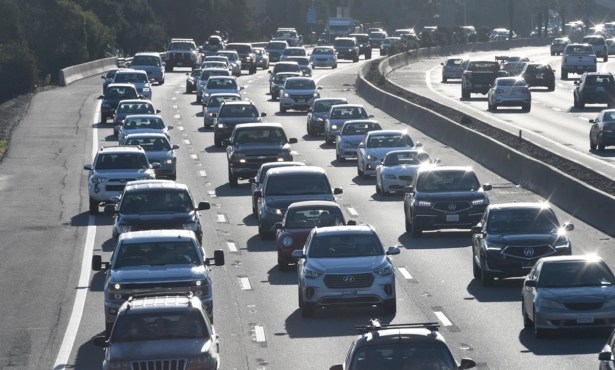Landlords Are Not Going to Jail
Thomas Fire's Rent Cap Expired with Its Emergency Declaration

For those landlords who read the March 18, 2022, op-ed entitled “Landlords Beware” and suddenly believed that they would be going to jail, think twice before sending in the measurements for your prison jumpsuit.
The piece, which Rachel Sim authored for the Santa Barbara Tenants Union, was premised on the contention that Santa Barbara County and California have been in an “uninterrupted state of emergency” since December 7, 2017, beginning with the Thomas Fire disaster declaration and continuing to this day with the various state and federal COVID-19 disaster declarations. As a result, the writer contends, the criminal price-gouging provisions in California Penal Code Section 396 prevent a landlord from raising rents more than 10 percent from what they were prior to December 7, 2017.
The one thing the piece gets correct is that Penal Code Section 396 in subsection (e) does prohibit “Upon the proclamation of a state of emergency declared by the President of the United States or the Governor, or upon the declaration of a local emergency by an official, board, or other governing body vested with authority to make that declaration in any city, county, or city and county, and for a period of 30 days following that proclamation or declaration, or any period the proclamation or declaration is extended by the applicable authority, it is unlawful for any person, business, or other entity, to increase the rental price, as defined in paragraph (11) of subdivision (j), advertised, offered, or charged for housing, to an existing or prospective tenant, by more than 10 percent.” (Italics added.) Furthermore, subsection (e) extends the protections to any new tenant who is offered the rental after an eviction.
There should be no dispute that Santa Barbara County is no longer subject to the disaster declaration for the Thomas Fire and ensuing mudslide from December 2017. Accordingly, pursuant to the Penal Code Section 396, the 10 percent rent cap going back to the December 2017 benchmark expired when “that” disaster declaration (and its extensions by executive order) expired.
There should also be no dispute that Santa Barbara County (and the rest of California) is still subject to the COVID-19 disaster declaration issued by Governor Newsom on March 4, 2020. As such, Penal Code Section 396 prohibits landlords from raising rents more than 10 percent from what they were prior to the issuance of “that” declaration on March 4, 2020.
The writer’s contention that multiple disaster declarations can be piggybacked together going back to December 2017 is where the analysis falls short. The statute is clear the 10 percent rent increase provision lasts for 30 days after “that” disaster declaration expires and the benchmark for prior rent is in comparison to what the rent was “prior to the proclamation or declaration.” It does not say “any” disaster declaration then in effect. Nothing in the statute indicates that if a new disaster commences while a prior one still exists, that the benchmark rent in place prior to the original disaster carries over as the benchmark to the new disaster after the original disaster ends. Accordingly, the current rent cap applies only to “the” proclamation that is currently in effect in Santa Barbara County — the COVID-19 disaster declaration. As such the 10 percent cap is benchmarked against what rents were as of March 4, 2020.
The writer’s claim that landlords have been prosecuted for violating Penal Code Section 396 is not compelling. As indicated above, it is a crime for a landlord to raise rents more than 10 percent from the rate that was in effect prior to the currently-in-effect disaster proclamation. Landlords have been prosecuted for exactly that — raising rents more than 10 percent since March 4, 2020. These prosecutions were not based on stringing multiple unrelated disaster declarations together to go back in time faster than Doc Brown in his DeLorean to implement a 10 percent rent cap from December 2017. As such, the existence of prosecutions under Penal Code Section 396 do not support the Tenants Union’s theory in any way.
The moral of the story should be, “Landlords beware” when people from Legal Aid and/or the Santa Barbara Tenants Union come bearing gifts of legal advice on how to run your businesses.
Robert B. Farouzandeh is an attorney in Santa Barbara, California. The information provided in this op-ed does not, and is not intended to, constitute legal advice; instead, all information and content in this op-ed is for general informational purposes only.



